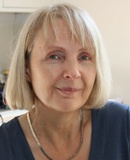‘This represents two firsts for the EFC, the first woman chair and the first chair from that part of Europe that a quarter of a century ago was still separated by the Iron Curtain. The EFC is constantly adapting as an institution. It’s a sign of change, of a willingness to adapt.’ So spoke Ewa Kulik, executive director of the Polish Stefan Batory Foundation and new chair of the European Foundation Centre, at the close of the EFC’s 2014 conference in Sarajevo, to tumultuous applause – especially from the women in the audience, some of whom will still have memories of that long-ago EFC opening plenary featuring seven men.
That may have been a watershed moment. Talking to Ewa, she remembered that when she joined the EFC Governing Council, there were only a handful of women out of around 30 members. Now the ratio is approaching fifty/fifty. Times they are a-changin’!
The closing plenary vividly highlighted some of the challenges faced by the EFC and its new chair – the crisis in the Ukraine and widespread disillusion about the European Union to the forefront.
The three next gen panellists were all agreed that the EU offers them nothing. ‘How can Europe give back hope for a better future? We don’t believe Europe can help us,’ said Josep González Cano from Spain, who had talked earlier about two friends of his. One went to university and doesn’t know what he will do next year. The other left school at 16 and worked in construction; now he hasn’t got work and he’s studying. There is 60 per cent youth unemployment in Spain (as in Bosnia). ‘These two need solidarity,’ he said.
Europe needs rethinking, said Lejla Kusturica from Sarajevo’s Mozaik Foundation. ‘Lack of a joint vision, democratic deficit, lack of trust, lack of solutions – these are the things that keep coming up. At the moment, the EU has solidarity among political elites,’ she said. ‘The EU started as a peace project but it’s not living up to this.’
‘We have to see each other as equals,’ said Noura El-Jafoufi from Belgium. ‘If you’re looking for solutions, you have to talk to people. You don’t make a script for people without them; that’s not solidarity, that’s colonization.’
‘There is a danger in the existence of this group without hope,’ said historian Yaroslav Hrytsak, the keynote speaker. ‘But there is also hope if they become angry and come up with solutions.’ While Noura wasn’t sure if being angry would be a solution, Lejla agreed that she was ‘angry in being part of a generation who don’t have jobs’ (she being one of the lucky ones).
Foundations came off a lot better than the EU. Noura, while surprised to find herself in the company of ‘well-dressed ladies and men in suits’, was also surprised to hear voices speaking out for participation and solidarity. It would be good to have the beneficiaries of projects represented, she said. Josep felt that ‘foundations could be important in coming up with solutions’.
Lejla stressed the need to be realistic. ‘Are foundations saving the world or making it less awful?’ she asked. ‘The first thing needed is to help alternative voices to be heard, of peace, solidarity, good governance, equality and justice. We should be attacking diseases and not symptoms.’
What would they do if they had €1 million for a project. A solidarity fund for people who’ve lost their homes in the floods that have devastated Bosnia, said Lejla. ‘Some money for my two friends, and some money to people to rethink our education system,’ said Josep. For Noura, rethinking the education system in Europe was the clear priority.
The conference ended with Pier Mario Vello announcing next year’s conference in Milan, 20-22 May. Called ‘Visions for Energy and Change’, the conference will coincide with Expo 2015, to be held in Milan. While efforts to make the programme committee more democratic can only be welcome, as is the emphasis on ‘harnessing the energy of tomorrow’s changemakers’, the pre-conference film, seeming to show an endless succession of tomorrow’s changemakers, all male, could only revive the EFC’s gender issue, and a question about the lack of women in Milan. Talking to Pier Mario later at the airport, he explained that they hadn’t wanted to waste money on an expensive film, and that all the young men had in fact been a single actor, with and without sunglasses, etc.
Finally, Ingrid Hamm of Robert Bosch Stiftung launched an appeal for the flood victims, suggesting that foundations should match the amount it had cost them to come to the conference. To donate, go to http://www.efc.be/BosniaFloods; the Mozaik Foundation will come up with projects.
Caroline Hartnell, is editor of Alliance magazine.







Comments (0)